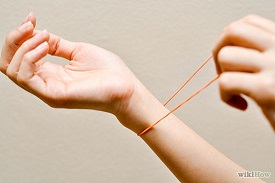I just got home from coaching my Steve Nash Youth Basketball team’s weekly game. It was a blast! To top it off we were able to get the win! However, what made today so enjoyable was not that we won, but the dramatic improvement the players made.

After a big win both athletes and coaches are undoubtedly happy. However, I posit that the joy from winning stems from having the battle of competition force them to grow and make progress.
They were moving without the ball, instead of ball watching, which resulted in many easy lay-ups. They were boxing out and going up to get rebounds to successfully end defensive possessions. Despite our opponent being one of the supposedly strongest teams in the league, we beat them quite easily. Do not get me wrong, I am no way taking credit for this improvement. The kids came to practice listened intently and worked hard. But it reminded me about a key lesson I learned during a recent basketball coaching clinic.
This clinic was lead by highly accomplished coaches Mike and Allison McNeill, who took the Canadian Women’s National program to great heights before focusing on coaching youth basketball. They mentioned that the biggest problem right now in youth sports is that too many children are quitting much too early. They had mentioned that the two main reasons that children drop out of youth sport are: They do not play and They do not get better.

Children want to have fun. They are not having fun siting on the bench! They want to get out and play! 90% of children would rather play and be on a losing team than be on a winning team and never play.
It may seem obvious that we should let our kids play and foster an environment in which they can improve in. But how many youth coaches truly emphasize equal playing time and improvement over wins? Obviously, it is hard to do, especially if you are coaching your own kid. But when one takes the responsibility to coach youth sports, it is their duty to do their best to have their actions fueled by what is best for all the kids.
Though it is important to have fun and not become overly focused on the end results (winning and scoring), that does not mean as coaches we should stop holding the kids accountable and pushing them. If they do not get better, they will cease to have fun. It is a basic human drive to want to be better. The children are not solely motivated by winning every game. They want to constantly get better, and hopefully see that improvement lead to well deserved victories.
While I was driving home after the game, I was reflecting on this lesson that crystallized right before my eyes in today’s game. I started looking back over my basketball journey and life in general. I was most happiest not when I had achieved what I aimed for, but during the process of working towards my goals and seeing those incremental improvements. Interestingly enough as well, when I was happiest I tended to perform my best. Unfortunately, throughout the majority of my basketball career I was so fixated on achieving my goal of playing at the NCAA division 1 level that I never truly enjoyed the journey. As a result I did not come close to performing at my best when it really mattered.
That is why my motto is be happy and chase your dreams. It is not “achieve your dreams and then be happy”. If you are not happy now, no achievement, no matter how remarkable, will bring you lasting happiness. Being happy not only makes the journey more enjoyable but it is also vital to allow you to maximize the success (in whatever way you define that) you achieve.
I challenge you to reflect on your life right now and gauge your general level of happiness. If you are not feeling happy, and generally optimistic about right now, and the future, I am going to challenge you to change your focus to what you could be happy about right now if you let yourself be and on what you can do starting today to make incremental improvement towards what is most important to you.
If you are an aspiring basketball player the two main areas I see that almost every young athlete is deficient in are: strength and ball handling. A simple and free way to dramatically improve your strength is to do anywhere from 20-50 (or as many as you can) push-ups every day. To improve you ball handling, aim to spend at least 5 minutes every day working on your dribbling. They are so many drills online that it would take a lifetime to master them all. It does not matter what drill you do, but that you focus on keeping your head up and being aware of the feel of the ball.
Be Happy and Chase your Dreams,
Pavan Mehat
PS Here are a couple of ways to connect with me if you have any questions or have any specific topics you would like me to address.
